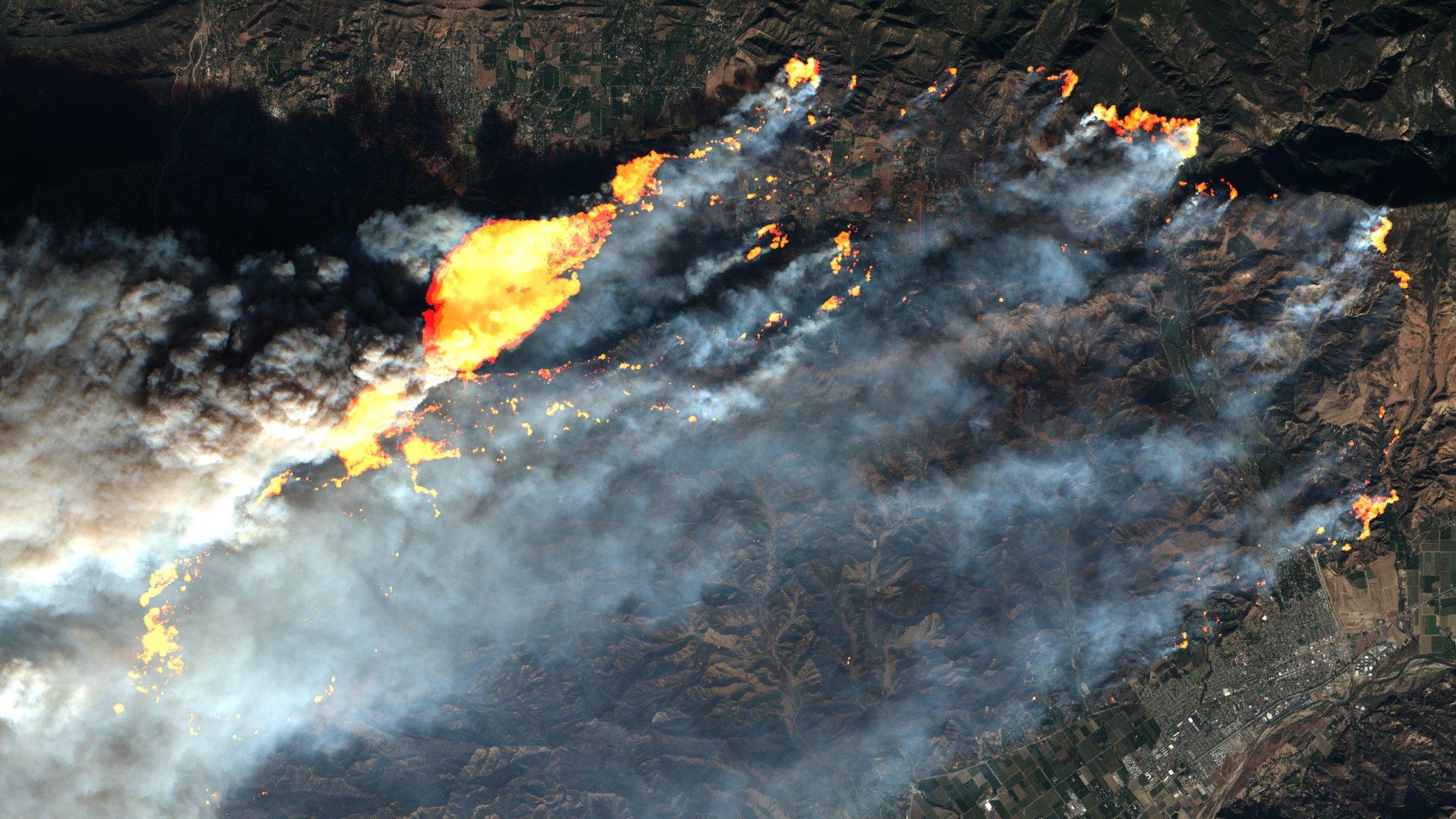California's Thomas Fire scorches area larger than New York City
- Published
Ben Rich updates the situation on the California wildfires
The most destructive wildfire raging in southern California has expanded significantly, scorching an area larger than New York City.
The Thomas Fire in Ventura and Santa Barbara counties has consumed 230,000 acres (930 sq km) in the past week.
Fanned by strong winds, it has become the fifth largest wildfire in recorded state history after it grew by more than 50,000 acres in a day.
Residents in coastal beach communities have been ordered to leave.
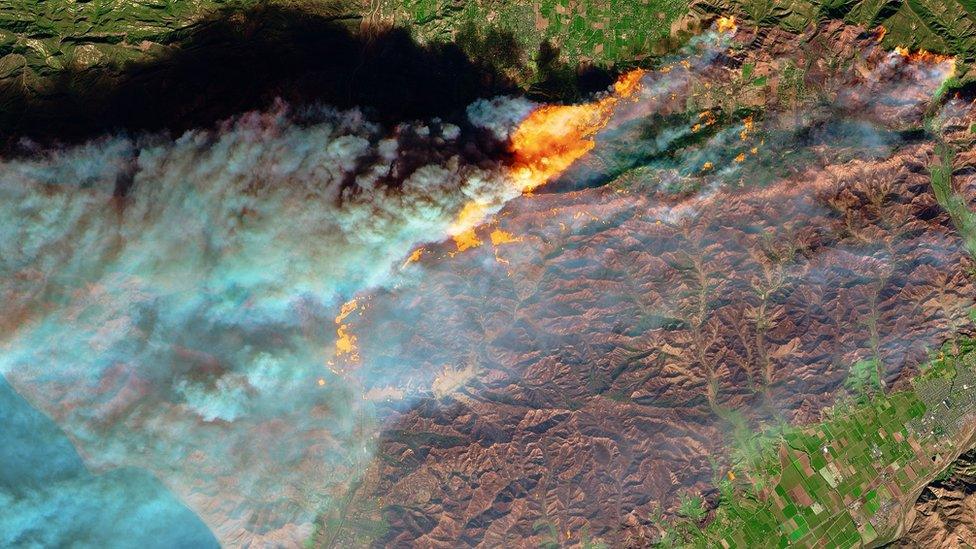
Satellite imagery shows the vast Thomas Fire, north of Los Angeles, which has spread as far as the Pacific coast
On Sunday, firefighters reported that 15% of the blaze had been contained but were forced to downgrade that to 10% as it continued to spread.
"This is a menacing fire, certainly, but we have a lot of people working very diligently to bring it under control," Santa Barbara County Sheriff Bill Brown said.
Thousands of firefighters are working round the clock to tackle the blaze, the California Department of Forestry and Fire Protection said.
The containment operation is not only being hampered by dry winds. It is proving challenging for firefighters because of the location and mountainous terrain.
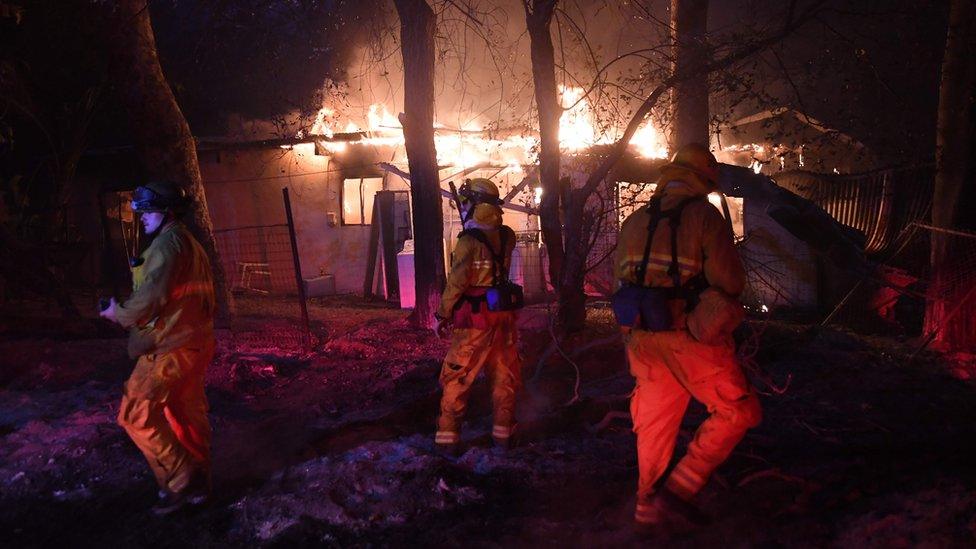
Firefighters face challenging conditions to contain the Thomas fire
An analyst with the California fire protection department, Tim Chavez, said the emergency services were struggling because "a hot interior" was in parts practically meeting the ocean, making access difficult.
"It's just a very difficult place to fight fire," Mr Chavez said, adding: "It's very dangerous and has a historical record of multiple fatalities occurring over the years."
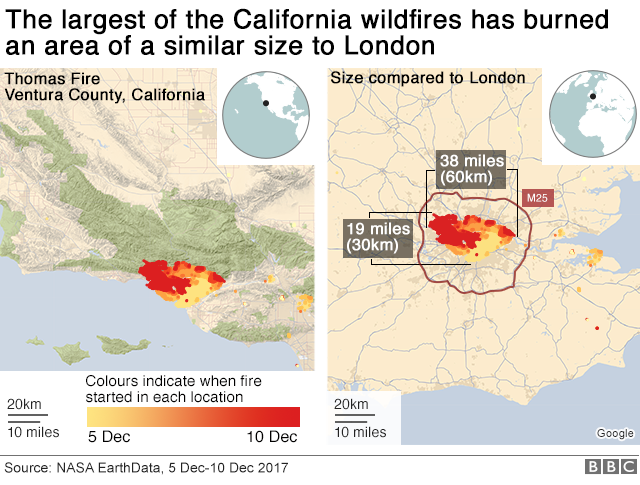
The other fires hitting California are largely controlled, but 200,000 people have evacuated their homes and some 800 buildings have been destroyed since 4 December.
The Thomas fire has the potential to be one of the worst in California's history
Evacuation orders were issued overnight on Sunday for parts of Carpinteria close to Los Padres National Forest, about 100 miles (160km) northwest of Los Angeles.
Forecasters said wind speeds were expected to increase throughout the day, before dying down again overnight.
The local fire department tweeted pictures of a wall of flames advancing on homes on the outskirts of Carpinteria early on Sunday morning.
Allow X content?
This article contains content provided by X. We ask for your permission before anything is loaded, as they may be using cookies and other technologies. You may want to read X’s cookie policy, external and privacy policy, external before accepting. To view this content choose ‘accept and continue’.
A member of the emergency services in Carpinteria said he would continue working alongside his colleagues until the fire was under complete control.
"What they did last night was amazing," firefighter Michael Gallagher said, adding: "They saved this entire community.
"We've been up, I'm at 29 hours straight, every other day... we are exhausted, but they're not coming off until this is done."
Meanwhile, actor Rob Lowe, who lives in Santa Barbara, a city of close to 100,000 people, tweeted that he was praying for his town as fires closed in.
"Firefighters making brave stands. Could go either way. Packing to evacuate now," Lowe added.
Allow X content?
This article contains content provided by X. We ask for your permission before anything is loaded, as they may be using cookies and other technologies. You may want to read X’s cookie policy, external and privacy policy, external before accepting. To view this content choose ‘accept and continue’.
California has spent the past seven days battling wildfires. Six large blazes, and other smaller ones, erupted on Monday night in southern California.
The Thomas Fire - named according to where it started, near the Thomas Aquinas College - is by far the largest of the fires.
They swept through tens of thousands of acres in a matter of hours, driven by extreme weather, including low humidity, high winds and parched ground.
The authorities issued a purple alert - the highest level warning - amid what it called "extremely critical fire weather", while US President Donald Trump declared a state of emergency.
On Saturday, California Governor Jerry Brown described the situation as "the new normal" and predicted vast fires, fuelled by climate change, "could happen every year or every few years".
Several firefighters have been injured, but only one person has died - a 70-year-old woman who was found dead in her car on an evacuation route.
There are also fears the blaze will seriously hit California's multi-million dollar agricultural industry.
Drivers filmed the flames from their cars near Bel Air
- Published9 December 2017
- Published9 December 2017
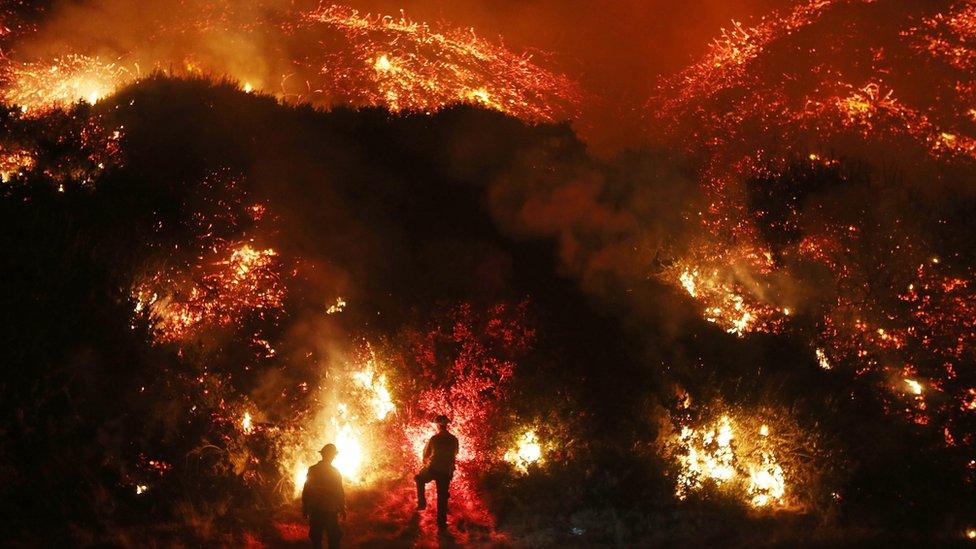
- Published8 December 2017
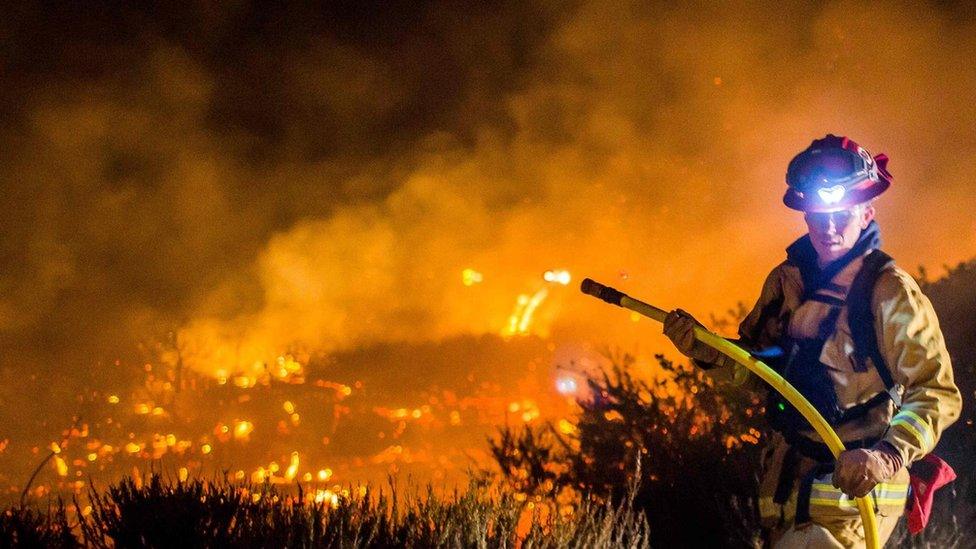
- Published8 December 2017
